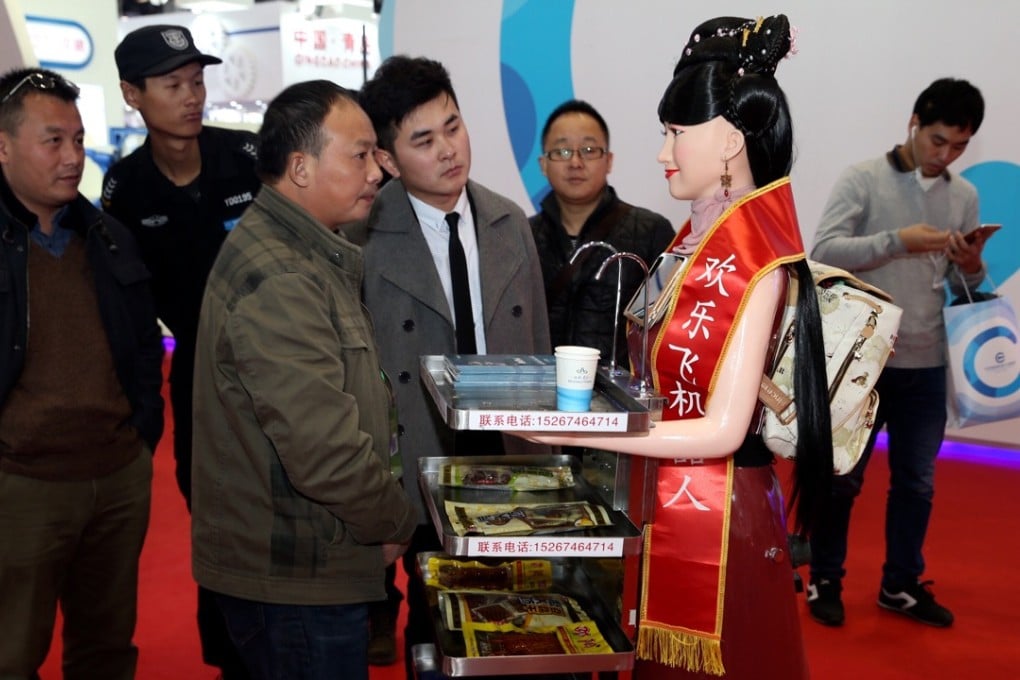New | China’s top leaders add political weight to robot conference
Appearance by vice-president at industry expo in capital highlights Beijing’s sci-tech ambitions

An automated vacuum cleaner highlighted China’s market potential for service robots, outselling a Xiaomi mobile phone to be one of the 10 most popular products during the Singles Day shopping extravaganza earlier this month.
That was the message Vice-President Li Yuanchao delivered on Monday in Beijing at the start of the three-day World Robot Conference, part of the country’s drive to overhaul its manufacturing sector and move up the value chain.
President Xi Jinping and Premier Li Keqiang also sent messages to the conference, underscoring the leadership’s ambitions for industrial robots and intelligent manufacturing to help drive the economy.
READ MORE: ‘World’s first’ robot kitchen cooks for visitors at CES Asia in Shanghai
The event, organised by the China Association for Science and Technology and the Ministry of Industry and Information Technology, includes a forum, an exhibition and an international robot competition for teens.
Addressing the conference, International Federation of Robotics president Arturo Baroncelli said China was the world’s biggest robot market, with 56 per cent of total sales last year.
Chinese interest in robotics took off in earnest after 2008 as manufacturers grappled with a labour shortage and looked for ways to cut costs.
Investment has grown with a range of tax breaks and incentives for automation companies and buyers.
But China is still far behind in its ability to design and make its own high-end robots, Wang Tianran, director of the National Engineering Research Centre on Robotics, told the conference.